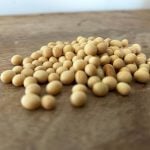
News

No new major neonic restrictions: Health Canada
Existing restrictions remain, but they won’t be expanded for the foreseeable future

Not time to retaliate on canola — yet
Some in the industry say it’s time to go political, but others say it’s too soon
Shifting sands on international trade
Trade times have changed — and that puts Canada in a tough spot

Stuck in the middle on world trade
In a world of trade disputes between economic superpowers, Canada needs to develop its capacity to respond quickly
Getting HR right a challenge
A new focus on human rights requires care and respect by farm employers

It takes a village to stop weeds
Researchers say the community nature of the problem of invasive weeds hasn’t been adequately incorporated into control efforts
Ex moves to rebuild heavy horse show
The organization says it remains committed to the iconic event

The next made-in-Canada tractor
What will Buhler make for Kubota’s move into the heavy-horsepower market?

Animal care code updates gain funding
This includes the livestock transport code which has been condemned for being out of date

Plugging the holes on African swine fever
Canadian officials hope to hold the line on African swine fever


